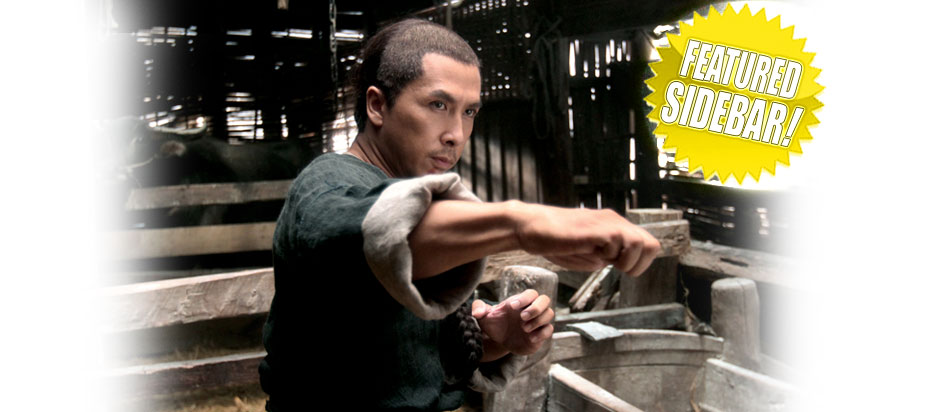When Hong Kong returned to China in 1997, its film industry was already in a tailspin from the first stirrings of the Asian Economic Crisis. A few years later, the industry, once the biggest film producer in Asia, was struggling.
But reports of its gradual demise have been greatly exaggerated. Presented with the support of the Hong Kong Economic and Trade Office New York of the Hong Kong Special Administrative Region Government, “Return of the King” is our update on the health of the Hong Kong film industry 15 years after the handover, and as far as we’re concerned, it has retaken the crown as one of the top film producers in Asia.
For the past few years, ultra-local Hong Kong movies like Ann Hui’s A Simple Life and Pang Ho-cheung’s Love in the Buff have been winning awards and fans around the world, while Hong Kong-Chinese co-productions like Dragon (Wu Xia), The Lost Bladesman, and Detective Dee, usually helmed by Hong Kong directors and stars, are turning into international box office hits that are hoovering up the box office loot. To celebrate the return of Hong Kong to its rightful place on the throne, we’ve invited two men who represent both of these new trends in Hong Kong cinema.
Director Pang Ho-cheung’s films are so grounded in hyper-specific local detail that you can’t imagine they’d ever play outside of the neighborhoods in which they were shot. His movies revolve around things like the 2007 Revised Public Health Ordinance that banned indoor smoking in Hong Kong, and the specifics of Category III film production. Yet they’ve traveled to international festivals, gotten bought for Hollywood remakes, and proved that the local is the new global.
On the other hand, no one represents the international Hong Kong blockbuster the way Donnie Yen does. A star and action choreographer, he has long traveled between Hong Kong, Japan, Hollywood, and China for his movies, and so it was no surprise that as Hong Kong films became more global, he would take the change in stride. His two Ip Man movies, both of them Hong Kong-China coproductions, have become massive hits across Asia, and his films like Killzone (SPL: Sha Po Lang), Dragon (Wu Xia), and The Lost Bladesman have played to enthusiastic crowds from Cannes and Canada, to Hong Kong and Beijing. The way that Jackie Chan and Chow Yun-fat used to be hired onto a film as guarantees that a Hong Kong film would have global appeal, Donnie Yen now takes on that role. His face is familiar all across Asia and, increasingly, around the world.
And so, 15 years after the handover, where are Hong Kong films? They’re different, no doubt. The local films have become more local than ever, with no more need to appeal to the once all-important Taiwanese and Malaysian audiences. But Hong Kong actors, directors, action choreographers, stuntmen, composers, cinematographers, and editors are still some of the best in Asia, and they now work in China, Hong Kong, Taiwan, Singapore, and Thailand, exporting Hong Kong’s distinctive style wherever they go. If you blow hard enough on a dandelion, you destroy the dandelion but you send its seeds sailing out across the world. Hong Kong is different now, but Hong Kong survives. And it grows. And now, it’s safe to say, that it is back. 15 years after the Handover, the King has returned.
For more: http://www.subwaycinema.com ‘)}






